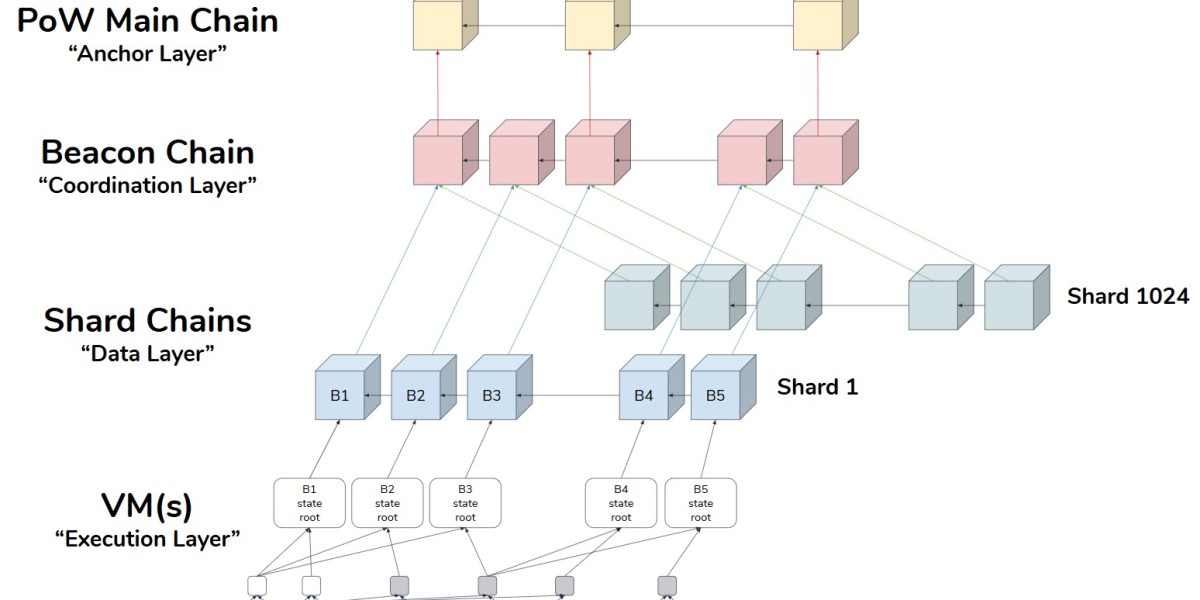In digitized financial sectors, there are various crypto enthusiasts who regularly invest and trade in digital assets on different platforms and blockchain networks. If you are also a crypto enthusiast then we are sure that you undoubtedly know about what are blockchain networks. But have you heard about the term Beacon Chain in the field of crypto, if not then don’t worry we are here to help you.
In our further content, we will cover some topics such as what is Beacon Chain, its features, and its components.
What is Beacon Chain?
The Beacon Chain is the renowned name in the update of the Ethereum network. In simple words, it is an essential part of the Ethereum 2.0 upgrade to strengthen the foundation of the Ethereum network. It plays an important role in shifting the Ethereum network from the Proof of Work (PoW) consensus mechanism to the PoS (proof of stake) consensus mechanism. The main objective of the chain is to increase the transaction speed, improve scalability, sustainability, lower network fees, and more. Along with that, it is also responsible for managing the various participating validators in the network consensus process and maintaining or coordinating the state of the network.
Features and responsibilities of Beacon Chain:
Now, we are sure that, reading through the above section you’ve understood what is Beacon Chain but if you want to know more about it then there are several key features and responsibilities of it which are mentioned as follows,
- It manages the Proof of Stake (PoS) consensus mechanism which is much more energy efficient as compared to the Proof of Work (PoW) consensus mechanism utilized by older version of the Ethereum network.
- One of the essential responsibilities of the Beacon chain is to manage the group of validators and their stakes in the network.
- Along with that, it also addresses the shard chains that make up the Ethereum 2.0 network. Shard chains spread the load of the network across 64 new chains and make it easier to run a node.
- Processes up to 20,000 to 100,000 transactions per second.
- Monitor the behaviour of the validators who run the network and then if the behaviour of the validator is good then they get rewards as an incentive. On the other hand, if the behaviour of the validator is not good such as performing any malicious activity like unavailability, or not performing its duties then it will get penalized.
- By using the function of a shard chain and Proof of Stake consensus mechanism, it also improves the scalability of the Ethereum network in blockchain technology.
Components of the Beacon Chain:
The several key components which make up the Beacon Chain are as follows,
- Validators: These are the people who participate in the network consensus process to continue the blockchain by staking 32 ETH into a deposit contract. They are responsible for creating new blocks and also get rewards and penalized according to their behaviours.
- Merkle Trees: Also known as Binary hash trees, these are the data structures that are operated for organizing and verifying the stored data on the Ethereum network. Along with that, it also ensures that the data is not lost, altered, or damaged.
- Data Storage: It utilizes a distributed database for storing the records of transactions and the state of the network.
- Networking: For maintaining better communication between the various nodes on the network it uses a P2P (peer-to-peer) networking protocol.
- Shard Chains: As we have also discussed in our above content, it handles the Shard Chains which runs in parallel to the main chain for a more efficient and decentralized system.
Final Thoughts:
In conclusion, the Beacon chain is a vital component of the upgrade of Ethereum 2.0. And addresses the limitations of the old Ethereum network by bringing about a new era of scalability, sustainability, security, and efficiency to blockchain technology.


